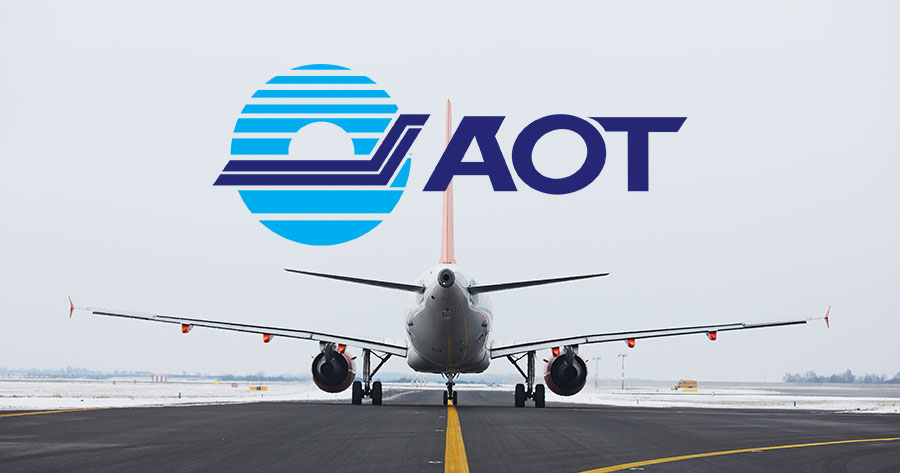Air Chief Marshal Manat Chuanaprayun, Director of the Civil Aviation Authority of Thailand (CAAT), stated that the organization and Airports of Thailand Public Company Limited (SET: AOT) are researching about passenger service charge (PSC) to find an appropriate increased amount as AOT has not raising its PSC for long period of time.
AOT’s PSC current rate is not reflecting the company’s operation cost, and this has become one of the challenges that prevent the company from expanding its airports. Compared to the region’s major airports, Thai airports collect the fee at a lower rate. For example, Singapore Changi Airport charged its outbound passenger about THB 1,400 -1,500 per person while AOT’s airports charged only THB 730 per person. If the company aims to become the regional aviation hub, it must increase its PSC to an appropriate amount to generate revenue that can be used to develop the airport and improve its services.
As for whether AOT will raise its PSC by THB 100, the company and CAAT must complete their studies first, which should be finished by this October. Once the findings are concluded, the company will propose the appropriate rate to the agency, presenting the study result and necessary measure, which includes an investment plan to improve Thai airports. Afterward, this information will be sent to the Civil Aviation Board (CAB). The company speculated that this increasing amount would raise its revenue by THB 3 billion per year.
Until then, CAAT proposed to CAB that AOT should increase its PSC by THB 5 per person, which would increase the company’s revenue by 200 – 300 million per year. The agency has concluded that this increased amount is appropriate, but the board cannot make any determination yet as one of its members has resigned. The board must propose new candidate lists and hold a meeting first, with Thailand’s Minister of Transport (MOT) acting as chairman.
As for AOT’s proposal to CAAT to start charging transit and transfer fees for the first time, the agency is waiting for the company’s proposal, which must include clear detail, reason for charging and goal, as well as rate comparison to other airports with similar performance.
Ms. Paweena Jariyathitipong, Deputy Managing Director of Engineering and Construction and Acting President of AOT, also stated the company has conducted the PSC study with a consultant. Although several nations are using various formulas to calculate the appropriate charging rate, they all have one standard, which is the International Civil Aviation Organization’s method.
AOT will study this formula to find an appropriate PSC rate for the company’s six airports. Although each airport has different operation costs and passenger volumes, the company plans to set their charging rates at the same amount. This policy would allow the company to manage its revenue and expenses systematically and equally.
Regarding the selection of public-private partnership (PPP)’s third operator for airplane ramps and ground support equipment and cargo terminal services, AOT will make an announcement in early August before informing MOT. Afterward, the department will present the candidate name to the nation’s cabinet and sign employee contracts if approved. So far the qualified companies are AOT Ground Aviation Services Company Limited (AOTGA) and BAGS Ground Services Company Limited.



